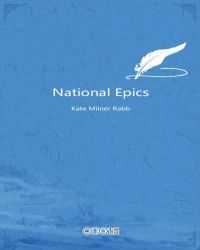THE SHAH-NAMEH.
您可以在百度里搜索“National Epics 艾草文学(www.321553.xyz)”查找最新章节!
THE SHAH-NAMEH.
The monarchs of ancient Persia made several attempts to collect the historic annals of their country, but both people and traditions were scattered by the Arabian conquest. The manuscript annals were carried to Abyssinia, thence to India, and were taken back to Persia just when the weakness of the conquerors was beginning to show itself. The various members of the Persian line, who had declared themselves independent of their conquerors, determined to rouse the patriotism of their countrymen by the recital of the stirring deeds of the warriors of old Persia.
The fame of Abul Kasin Mansur, born at Thus, in Khorasan, A. D. 920, reached Mahmoud of Ghaznin, who was searching for a poet to re-cast the annals of Persia. He called the poet to his court, and, on hearing him improvise, called him Firdusi (the paradisiacal). The poet was intrusted with the preparation of the Shah-Nameh, or Epic of Kings, for every one thousand distichs of which he was to receive a thousand pieces of gold. It had been the dream of the poet's life to build a bridge and otherwise improve his native town. He therefore asked that the payment be deferred until the completion of his work, that he might apply the entire sum to these improvements. But when the poem was completed, after thirty years' labor, the king, instigated by the slanders of the jealous prime minister, sent to the poet sixty thousand silver instead of gold dirhems. The enraged poet threw the silver to his attendants and fled from the country, leaving behind him an insulting poem to the sultan. He spent the remainder of his life at Mazinderan and Bagdad, where he was received with honor, and in his old age returned to Thus to die. Tradition relates that Mahmoud at last discovered the villainy of his minister, and sent the gold to Thus. But the old poet was dead, and his daughter indignantly refused the money. Mahmoud then applied the sum to the improvements of the town so long desired by Firdusi.
The Shah-Nameh is written in the pure old Persian, that Mohammed declared would be the language of Paradise. In its sixty thousand couplets are related the deeds of the Persian kings from the foundation of the world to the invasion by the Mohammedans; but it is of very little value as a historical record, the facts it purports to relate being almost lost among the Oriental exaggerations of the deeds of its heroes.
The only complete translation in a foreign language is the elaborate French translation of Julius Mohl.
The Shah-Nameh is still popular in Persia, where it is said that even the camel drivers are able to repeat long portions of it. Firdusi is sometimes called the Homer of the East, because he describes rude heroic times and men, as did Homer; but he is also compared to Ariosto, because of his wealth of imagery. His heroes are very different from those to whom we have been wont to pay our allegiance; but they fight for the same principles and worship as lovely maids, to judge from the hyperbole employed in their description. The condensation of the Shah-Nameh reads like a dry chronicle; but in its entirety it reminds one of nothing so much as a gorgeous Persian web, so light and varied, so brightened is it by its wealth of episode. National Epics
